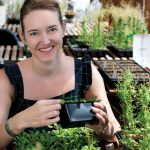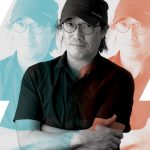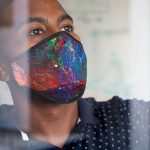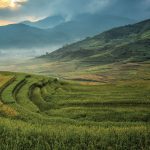OBSERVATIONS Julie Law Revealing RNA
Although Associate Professor Julie Law began college thinking she was going to become a physician, a summer job in a lab introduced her to the rewards of scientific research. She earned a bachelor’s degree in biochemistry and biophysics, as well as a doctoral degree in biochemistry (studying parasites), and she conducted postdoctoral research into the chemical tags on DNA that are known as methylation. As a member of the plant biology faculty at Salk, Law studies gene regulation.
Inside Salk sat down with Law to find out about the common themes underlying her research and to discuss what motivates her both in and out of the lab.
What is the “big picture” description of your research?
In biology, there’s what’s known as the central dogma about the flow of genetic information. All the information is hardwired in the DNA code, and then it has to be translated into other languages for the cellular machinery to understand. And RNA is one of those intermediary translation steps. But over several decades of research, it’s been realized that RNA plays a really fundamental role in a diverse set of processes outside of that initial translation of information. So, since my graduate school days, my research interests have been grounded in trying to understand the different roles that RNAs—short copies of DNA segments—play in connection to gene regulation, which, essentially, is the process of turning genes on and off.
We hear a lot about DNA and genes, but we don’t really hear much about gene regulation. What is it, and why is it important?
Every cell within an organism has nearly identical genetic information, yet not all cells look or act the same. In mammals, a heart cell isn’t the same as an immune cell, for example, even though they share the same genetic blueprint. The way you get cellular diversity is by controlling which genes are turned on and which ones are turned off, which is dictated by various types of chemical modifications. These modifications [also called the epigenome] can include chemical tags that attach to DNA, or the proteins that bundle DNA into a package that fits in the cell. And just as mistakes in the DNA code of a gene can result in disease, problems with gene regulation can also cause disease.
You referred to mammalian cells, but you work with plants. Can you explain why?
I would say the strengths of studying gene regulation in plants are twofold: First, you can get viable genetic mutants, which allows you to manipulate the processes. You can figure out, for example, if you tweak this gene, what goes wrong in the context of a living organism. In mammalian systems, these kinds of tweaks can be lethal, making it very hard to understand the causes or consequences of particular changes. And second, plants have a very short life span, which allows us to look at things over multiple generations and collect a large amount of information over a short time.
Speaking of plants, at Salk one of the things you’re working on is the Harnessing Plants Initiative, which seeks to mitigate global warming by using plants’ natural ability to capture and store carbon. How does your work fit into the initiative?
The Harnessing Plants Initiative involves all of the plant biology faculty at Salk. We’ve banded together to use our collective expertise to address a globally important problem, which, of course, is climate change. We want to identify or generate plants that can shuttle more carbon—from CO2 in the atmosphere—into very long-lasting carbon-storage molecules in plant roots and the soil. But we don’t want to have to recreate the wheel; engineering every step in the process, from taking in the CO2 to generating these carbon-rich molecules, would be very difficult. So we want to understand how the plant normally turns on the machinery necessary to do that process and then turn it up. My work involves identifying the gene regulatory machinery that will allow us to do that turning up.
Were you always interested in science?
I was always interested in science and math. When I was in my second year in college, I had the opportunity to do a summer internship in a lab. That opened my mind to all kinds of different possibilities, and it’s what convinced me to switch from premed to the biochemistry/biophysics degree. I was addicted to the lab from the start, and I had this realization that you could work in a research lab, making new discoveries, and get paid for it!
Are there any other scientists in your family?
Yes, on both sides. My mother is a microbiologist and worked in a hospital lab until she retired recently, and her work was my first exposure to science. My father and two of his three brothers are in STEM as well. My dad is an electrical engineer, and my two uncles are chemical engineers, so it’s safe to say I had a lot of exposure to science growing up.
How did you end up at Salk?
Salk is a really special place on many levels. For me, the huge drawing points were the strength of both the plant biology program and the program studying gene regulation and epigenetics. A lot of places independently study those processes, but very few bring them together across a diverse set of species and organisms. So it was a unique opportunity to join a world-renowned plant biology institute but also be surrounded by people studying the role of epigenetics in cancer and the roles of genome structure in genome stability.
Not coming from a plant biology background, I was drawn to the idea that studying processes from different angles and in different organisms can give you a great perspective on science. And having a place that values that kind of diversity was really attractive to me.
Right now, due to the COVID-19 pandemic, you’re not able to work much in the lab. Are there things you miss?
Definitely. Before all the working from home, it was quite exciting to get in, in the morning, seeing what people were doing and seeing what the day was going to bring. You never quite knew what new experiments you were going to get to do.
The pandemic is probably also affecting what you can do outside of the lab, but under normal circumstances, what do you like to do for fun?
I grew up in Oregon, camping, doing a bunch of sports, riding a motorcycle. I don’t do as many of those things anymore, but I still like hiking and being outdoors.
You rode a motorcycle? That sounds pretty adventurous!
I guess I just grew up doing it, so I didn’t think about it as being so adventurous, but—yeah. I ran into a tree once, with a lot of people watching, so that was pretty embarrassing at the time. But it’s a good memory now.
Support a legacy where cures begin.
Featured Stories
 Leading Salk science into the futureInside Salk sat down with Rusty Gage to learn more about his background, approach to managing a world-renowned Institute, and vision for Salk science over the next decade.
Leading Salk science into the futureInside Salk sat down with Rusty Gage to learn more about his background, approach to managing a world-renowned Institute, and vision for Salk science over the next decade. Julie Law – Revealing RNAAssociate Professor Julie Law shares common themes underlying her research and discusses what motivates her both in and out of the lab.
Julie Law – Revealing RNAAssociate Professor Julie Law shares common themes underlying her research and discusses what motivates her both in and out of the lab.
 Gerald Pao – Pushing the limits in science and lifeFrom studying the novel coronavirus to downloading brains to computers, Staff Scientist Gerald Pao is at the forefront of scientific advancement.
Gerald Pao – Pushing the limits in science and lifeFrom studying the novel coronavirus to downloading brains to computers, Staff Scientist Gerald Pao is at the forefront of scientific advancement. Austin ColeyAustin Coley, though only at Salk since 2019, has already taken an active role in everything from conducting innovative research on the brain to spearheading a wide variety of outreach activities.
Austin ColeyAustin Coley, though only at Salk since 2019, has already taken an active role in everything from conducting innovative research on the brain to spearheading a wide variety of outreach activities. Salk’s Harnessing Plants Initiative (HPI) Garners Widespread SupportNew grants are supporting the Institute’s efforts to optimize plants’ natural ability to store carbon and mitigate climate change. This support bolsters the ongoing HPI project focused on model plants that was funded through donations to The Audacious Project in 2019.
Salk’s Harnessing Plants Initiative (HPI) Garners Widespread SupportNew grants are supporting the Institute’s efforts to optimize plants’ natural ability to store carbon and mitigate climate change. This support bolsters the ongoing HPI project focused on model plants that was funded through donations to The Audacious Project in 2019.





















































